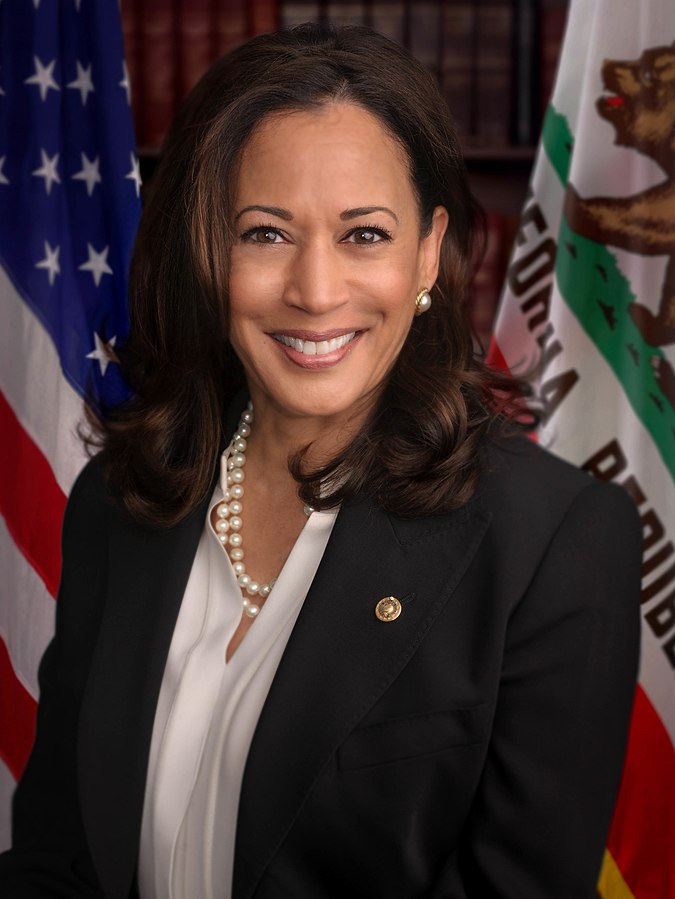Research
Special Projects
Biden Administration International Affairs Personnel Tracker
Kamala Harris

Vice President of the United States of America
During her brief tenure as a U.S. Senator for California, Vice President Kamala Harris served on the Senate Judiciary Committee and the Senate Homeland Security and Governmental Affairs Committee, which focused largely on domestic issues such as the U.S. response to the COVID-19 pandemic. However, she also served on the Senate Select Committee on Intelligence which placed a greater emphasis on international security threats. Although Vice President Harris is largely thought to have greater expertise on domestic issues, her background shows her clearly having gained significant experience in foreign policy.
On China
Nearly all of Harris’ past legislative co-sponsorships and votes on issues regarding Chinese human rights violations in Xinjiang, Hong Kong, and Tibet, as well as her opposition to allowing Chinese companies like Huawei to conduct business in the US, indicate that she will likely attempt to hold Biden in alignment within those same areas. Harris was quoted by the Council on Foreign Relations in 2019 saying “ we will cooperate with China on global issues like climate change, but we won’t allow human rights abuses to go unchecked.” She also recognizes that strategic cooperation with China on select issues is necessary to solving global issues like climate change and denuclearization in the Korean Peninsula.
Table 1. China-related Legislation Senator Kamala Harris was Involved in by Issue Type (2017-2020)
|
Legislation Issue Coverage |
Total Count |
|
Human Rights |
11 |
|
Security |
10 |
|
Business & Trade |
6 |
|
Technology |
1 |
Note: These statistics were compiled into a database by ICAS scholars from the U.S. Senate’s website. Many pieces of legislation former Senator Harris acted on involved more than one issue type. For more information on this database, please contact ICAS at icas@chinaus-icas.org with any questions.
Harris’ most important action as Vice President relating to China thus far was a week-long diplomatic trip to Southeast Asia from August 20-26. On August 24, in a foreign policy-oriented speech delivered in Singapore, she outlined the U.S. vision guiding its involvement in the Indo-Pacific region. Speaking about the importance of ‘Freedom of Navigation’ to both regional security and the global economy, Harris stated that:
…in the South China Sea, we know that Beijing continues to coerce, to intimidate, and to make claims…These unlawful claims have been rejected by the 2016 Arbitral Tribunal decision and Beijing’s actions continue to undermine the rules-based order and threaten the sovereignty of nations. The United States stands with our allies and partners in the face of these threats.
However, she also noted that the U.S. engagement in Southeast Asia is not intended to make nations “choose between countries” and intends only to “advanc[e] an optimistic vision” that nations in the region may interact with. She touched on an example of this later in her remarks in announcing the US-Singapore Climate Alliance.
Bilateral and Multilateral Engagements with China
Media Commentary & Public Perceptions
- India’s Modi meets Kamala Harris ahead of bilateral talks with Biden and Quad summit
- Harris rebukes China in speech on Indo-Pacific vision
- Candidates Answer CFR’s Questions: Kamala Harris
- Biden’s chief foreign policy appointment: his running mate
- From China to Israel, Where Kamala Harris Stands on Foreign Policy
Page Last Updated: January 11, 2022
*None of the personnel in this tracker are associated with the Institute for China-America Studies. All images used on this page are sourced from the official Biden-Harris transition website buildbackbetter.gov or the public domain.*

